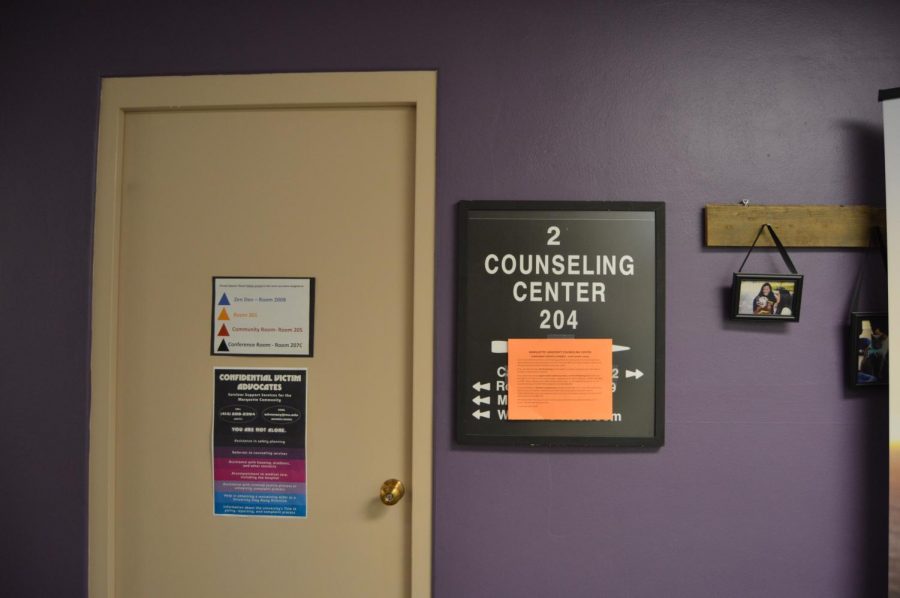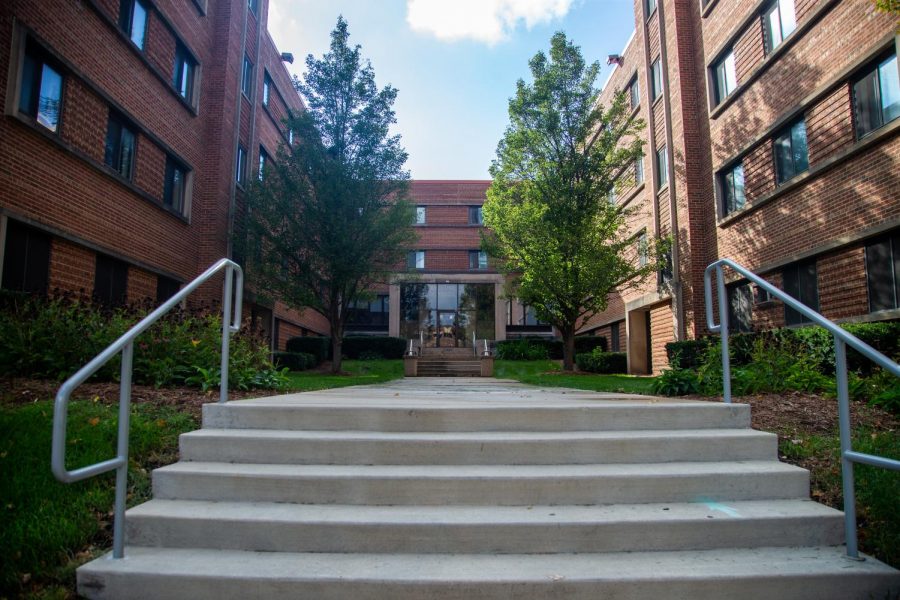College presents students with struggles they have likely not experienced before — the pressures of establishing a sound social life, possibly moving away from home for extended periods of time and high stakes when it comes to schoolwork.
With that, many students may be in need of mental health support throughout their time at Marquette University. To best facilitate and care for these students, Marquette must create more proactive and transparent access to mental health resources on campus.
A prominent resource for students to utilize at Marquette is the Counseling Center.
Located in Holthusen Hall, the center operates as an outlet for students to seek support with their mental health — whether they experience ongoing mental illness or are enduring the ever present ebbs and flows in their overall mental health. Some of their services include individual and group counseling, crisis services, outreach, prevention and situation specific aid. Although there is an abundance of good done by this center and the operators who keep it afloat, there are notable limitations.
Students only have access to counseling services for one semester.
This is understandable as the center has limited time, money and specialists, but it does serve as a hindrance to the overall effectiveness of the counseling. People who undergo therapeutic treatment sometimes attend sessions for several years. Once students at Marquette have reached their “time limit” with counseling on campus, where do they go from there?
For many, mental health does not involve isolated incidents and people do not have to endure a crisis in order for their struggle to be validated — people experience ongoing battles with their mental wellness all of the time. And with that, students cannot be expected to go through a few months of counseling and walk away patched up, good as new and with all of the tools they need to thrive in college.
In order for Marquette to provide students with more long-term solutions and services, there should be dedicated and transparent efforts to inform them of how to seek help in other avenues.
The university offers students access to SilverCloud, which is a free, confidential and interactive online tool to address mental health concerns and ailments. This can be seen as a helpful and accessible resource to aid in students’ journey to care for their mental wellness. But, it should not stop there.
One thing that Marquette could do to affirm their dedication to students’ mental health is to hold informational seminars and sessions to make it clear what resources they can seek out for help. Although their treatment at Marquette may draw to a close after one term, that does not mean they’ve hit a dead end.
It has been asserted that once students end their counseling sessions at Marquette, they are sometimes offered guidance with the next steps. But, this should be a resource for all students on campus, including ones who have not utilized the Counseling Center specifically.
Marquette is not lacking in its mental health resources for students, but it needs to do a better job of making clear what they are, how students can access them and how to ask for help. Just as the university advertises basketball games and extracurricular opportunities, it needs to make mental health transparency a priority. Although students are self sufficient, it may add another layer of difficulty for them to be expected to seek out mental health resources with no support or direction.
Often times, mental health is prioritized for studentsonly during midterm or final exam weeks. Therapy dogs are typically brought into the Alumni Memorial Union, snacks are provided at certain locations and a more clear advertisement is needed of how to seek support during these stressful times. But, it is important to consider that many students struggle with mental health throughout the duration of the year and these issues do not just arise during exam season.
If Marquette can make a clear and conscious effort to allocate students with therapists, support groups and medical resources that they can take advantage of during and after their time in college, they can make a lasting impact.
Editorial topics by the Marquette Wire are decided at weekly meetings between members of the executive board. The editorial is crafted with leadership by the executive opinions editor. The executive board consists of the executive director of the Wire, managing editor of the Marquette Tribune, managing editor of the Marquette Journal, general manager of MUTV, general manager of MUR and ten additional top editors across the organization.












